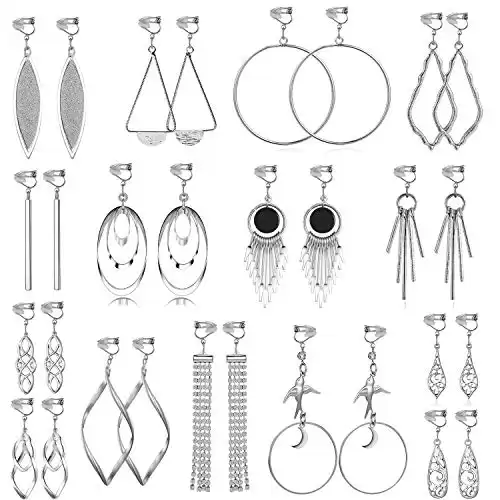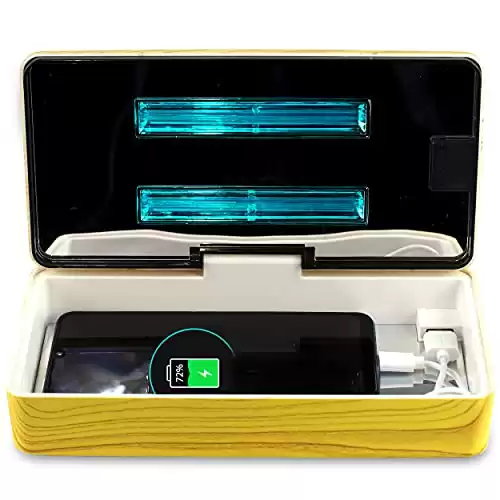The facts about body piercings show it is a common choice people use to express themselves in various ways.
- Over 80% of Americans have their earlobes pierced.
- About 14% of people have a piercing outside of their ears.
- Navel, tongue, eyebrows, lips, and nose piercings are the most common options after earrings.
With more people looking at piercings as an option, many lawyers and law students wonder if this choice is suitable for their careers.
Can Lawyers Have Piercings?
Lawyers are allowed to have piercings. Nothing in the law suggests this option is not allowed, but some white-shoe firms could frown on the practice. Your clientele would also dictate decisions in this area. You wouldn’t want to wear something that could be used as a weapon in court.
Most women have their ears pierced today. More men have at least one ear pierced, and having multiple piercings is becoming more common.
In the legal field, many firms take a conservative approach to dress code and appearance. A simple pair of earrings is probably allowed, especially for women. Multiple piercings might be a violation of some expectations.
Facial piercings are often frowned upon by firms. It could also cause a jury to embrace their preconceived notions about your appearance instead of listening to the case.
Whether you agree or not, a good part of being an attorney (especially a junior one) is to keep up appearances. Many clients, typically conservative and older ones, might not be enthused about seeing someone with facial piercings.
What Does the Data Say About Lawyers and Piercings?
The most recent information about lawyers and piercings is from 2001. In that survey, 60% of employers said that they were less likely to hire candidates if they displayed tattoos or piercings during the application process.
The reason why candidates with piercings were not seen in a positive light is due to the potential negative response that clients would have to the firm.
Even though people with piercings are equally common across all income and education levels, societal stigmas associate this choice with recreational drug and alcohol use, prison time, and a lack of religion.
If you are a lawyer applying for a job at a civil rights organization or a non-profit business, piercings could set you apart from the other candidates. When you want to work for one of the biggest firms in New York City, where a strict dress code gets enforced daily, it might be better to look for a more conservative style.
What Piercings Are Considered Unprofessional in the Legal World?
When looking at the dress codes of legal firms today, the primary piercings that are considered unprofessional are the ones found in the nose or lip.
Although a handful of businesses still don’t want their workers to have multiple piercings in the ear, the industry is trending away from those choices as being problematic.
Facial piercings are becoming more acceptable in one’s personal life now, but it will take some time for professional entities to agree with that perspective. Even though it is sad to see individuality and self-expression being suffocated in the workplace, there are some plausible reasons to avoid certain piercings as an attorney.
Any piercings on the face could also be considered unprofessional. That means anything on the eyebrow, cheek, or chin might be a violation of a firm’s dress code or appearance mandate.
What To Know Before Getting a Piercing
If you’ve been thinking about getting a piercing, it’s important to consider what will happen after the work is done.
About 35% of nurses serving at a U.S. hospital with ear piercings reported that they had at least one complication with the work. Although significant problems only develop about 1% of the time, the most common side effect of this form of self-expression is a minor infection.
Before you allow anyone to do this work, it’s essential to review the health and safety practices of the piercer and the parlor or shop. The individual doing the work for you should be wearing gloves and using a clean instrument.
If you have a piercing that was already done and needs to be reopened, there is a higher risk of infection.
Here are some of the other concerns you’ll want to watch for after getting a piercing.
1. You could be allergic to the piercing.
Any jewelry that contains cobalt, nickel, or white gold can cause an allergic reaction. Although most reactions go away shortly after removing the piercing, some people can experience a prolonged fact that includes redness, swelling, and hives.
If you experience this issue, it is crucial to upgrade to titanium, surgical-grade stainless steel, or 18k gold to prevent symptoms from appearing.
2. Don’t think of a piercing as a trial investment.
Some people go into a piercing parlor with the idea that they can always take the piercing out if they don’t like it. Although that perspective is technically correct, the healing process isn’t always flawless. Bumps, scarring, holes, and depressions can remain after removing the jewelry.
If you want a trial run, it might be better to try a set of clip-on earrings or piercings first.
3. The best piercings are still considered trauma to the body.
When you get a piercing, you will experience redness and swelling at the site because trauma is necessary to create the hole for the jewelry that you wear. It’s all part of your natural healing response.
That doesn’t mean you’ve got an infection if that happens. With an added emphasis on cleaning and sterilizing, the skin reactions that piercings create today are more likely related to the harsh chemicals used to keep you safe.
Because of this issue, some people can develop thickened scar tissue on the back of their ears or nose after a piercing. It’s a condition called a “keloid.” They often must be removed as a treatment option. People between the ages of 10 to 20 of Asian, Hispanic, or African descent or more likely to experience this outcome.
4. Your body needs you to keep the jewelry clean.
It doesn’t take much effort on your part to encourage your body to heal after receiving a piercing. It works hard to ensure that your wounds will heal appropriately.
Your job is to keep the jewelry clean. Some people have their bodies interpret something new as a foreign body, which means the earrings become a lot like a splinter. If it rejects the piercing, it’s trying to remove the irritant.
5. A good piercing requires some artistic wisdom.
One of the worst things you can do when you want to get your ears pierced is to go to some random retail shop. The guns used for that process deliver blunt force trauma, creating more bruising and injury that can prolong the healing process.
It’s always better to work with a professional who does this work full-time. Piercing placement requires more thought than a random spot chosen by someone with five minutes of training.
6. Some piercings take longer than others to heal.
The body can generate more blood circulation to some parts of the body than others. That means you’ll experience faster healing in those areas than the ones that need more support. If you get a nose ring, it can take up to twice as long for it to heal as your earlobes, tongue, or lips.
That doesn’t mean the piercing will hurt for that amount of time. You just need to make sure that you’re cleaning the area according to your piercer’s instructions.
There is such a thing as doing too much cleaning work with a piercing. For most people, a mild sterile saline solution is the best option. That should be enough if you clean your jewelry twice per day during the healing stages.
I like to use a disinfecting box for that extra step of protection. The JJ Care UV Disinfecting Box provides sanitization options that are safe enough for a smartphone. It’s big enough to handle a bracelet, which means it has plenty of space for all my piercings.
- High-Quality Sanitizer Box for Home Items
- Includes a Protection Safety Switch
- Office & Clinic Use
7. Stop using ointments for your cleaning needs.
You’d put a triple antibiotic ointment on your cuts and scrapes. Why not get some on your piercing to help it heal?
The goal of cleaning your piercing is to wash it away. That’s why a high-quality saline wash is highly recommended. If you place an ointment in that area, any dust or irritants could remain there to keep causing problems.
8. The piercing industry isn’t well-regulated.
The United States doesn’t have any federal regulations that apply to the piercing industry. You can travel to some states where no laws are on the books, which means anyone with the tools can market this service as part of their business.
That means it falls on you to make choices about your health and safety when you want a piercing. You’ll want to complete the following steps when reviewing a potential business to ensure you have a great experience.
- ALWAYS read the online reviews of a piercing parlor. Pay close attention to the ones that describe how the work is done.
- Visit a shop in person so that you can see how everyone works. Are they maintaining sanitary practices?
- Think about how comfortable you feel in that space.
- Review the portfolio pictures from your piercer. Although these pictures are the best examples of their work, it’s still a good starting point to consider when your piercing requires a specific skill.
Should a Lawyer Get a Piercing?
The decision to get a piercing is a personal one. Before choosing to get one, it helps to review an employer’s dress and appearance code expectations to ensure you’ll be complying. It is possible to legally terminate workers over this form of self-expression in right-to-work states.
I’ve never had any issues with my tattoos or piercings in the workplace, but I’ve also been proactive about choosing progressive firms that don’t use restrictive dress codes.
When I’m working with clients with a history of aggression, I take out my jewelry so that it cannot be used as a potential weapon. That also means I choose my clothing carefully to ensure I’m in control in those situations should something unforeseen develop.
If you work as a lawyer with a firm that serves entertainment industry clients or non-profit needs, it’s less likely that she’ll encounter problems with your piercings.
It’s only when you want a job with some of the most conservative firms in our industry today that you’ll typically encounter problems.



